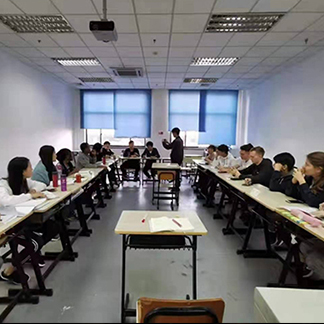学习中文,来早安汉语吧。
If you want to learn Chinese,welcome to mandarin Morning.
大家好,欢迎来到早安汉语。
今天,我们要学习一个新的知识点:“了”表变化
Today, we are going to learn a new knowledge point: “了” is used to indicate changes.
“了”用于句末,表示变化或新情况的出现,例如:
“了” is used at the end of a sentence to indicate changes or the emergence of new situations, such as:
王老师今年60岁了。
Miss Wang is 60 years old this year.
我同学的女儿今年5岁了。
My classmate’s daughter is 5 years old this year.
你弟弟几岁了?
How old is your brother?
今天的知识点,您学习会了吗?
Have you learned today’s knowledge points?
学习中文,来早安汉语吧!
Learn Chinese, come to mandarin Morning.
Post time: Jul-07-2022

